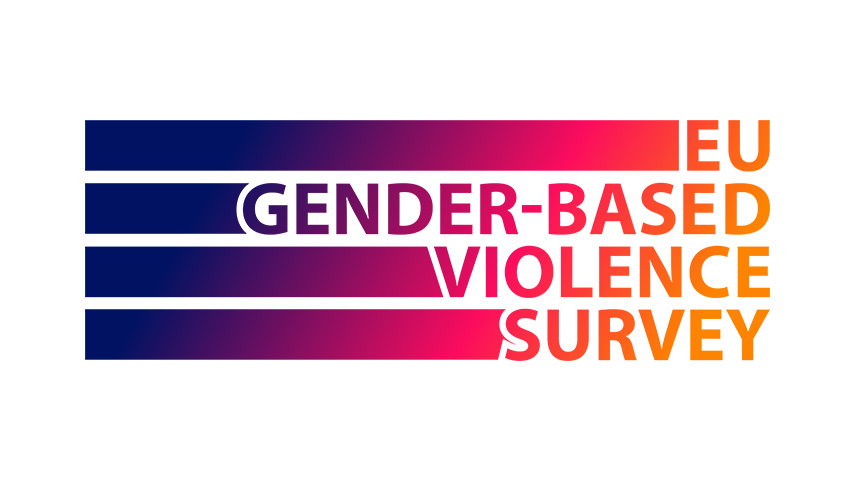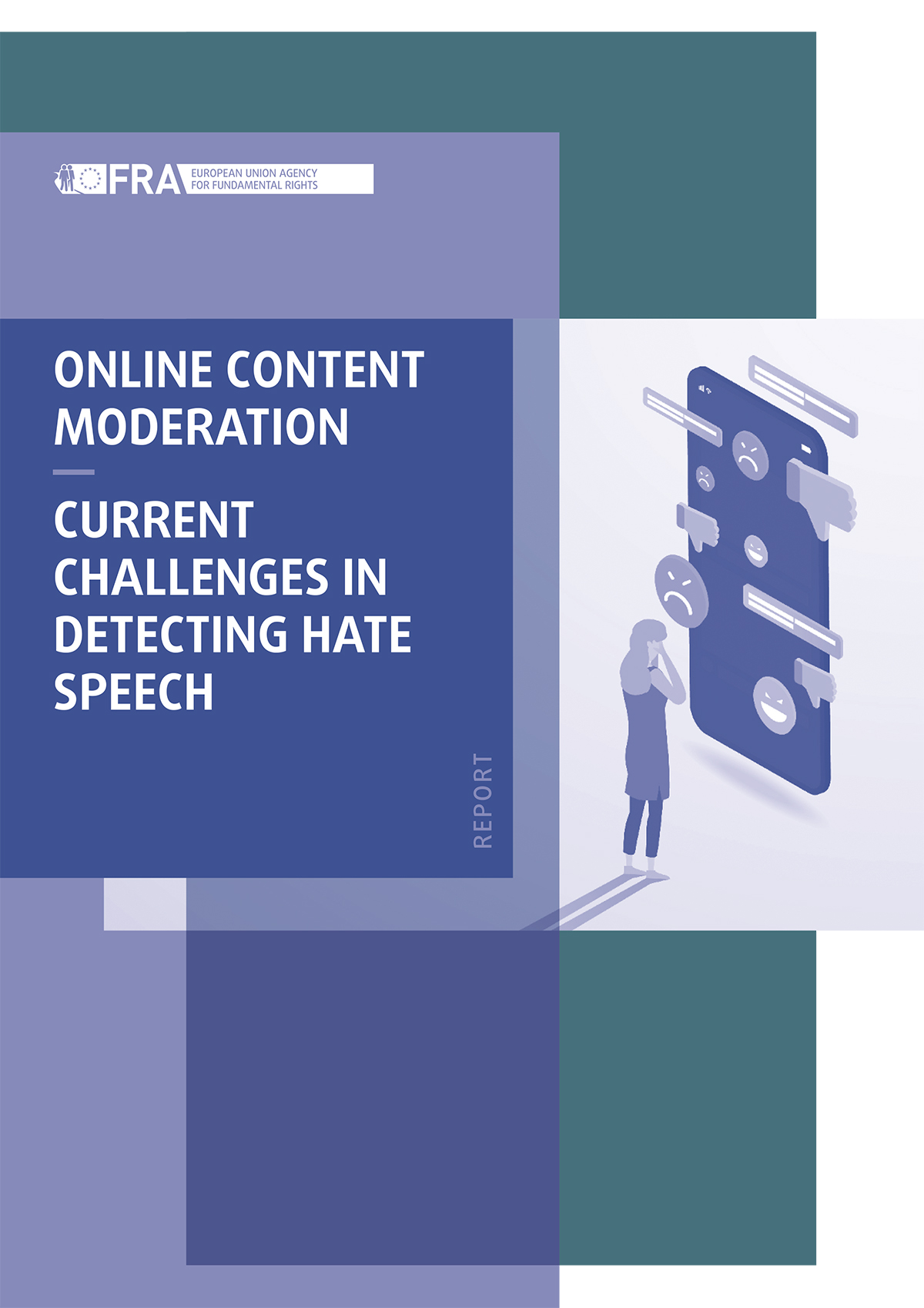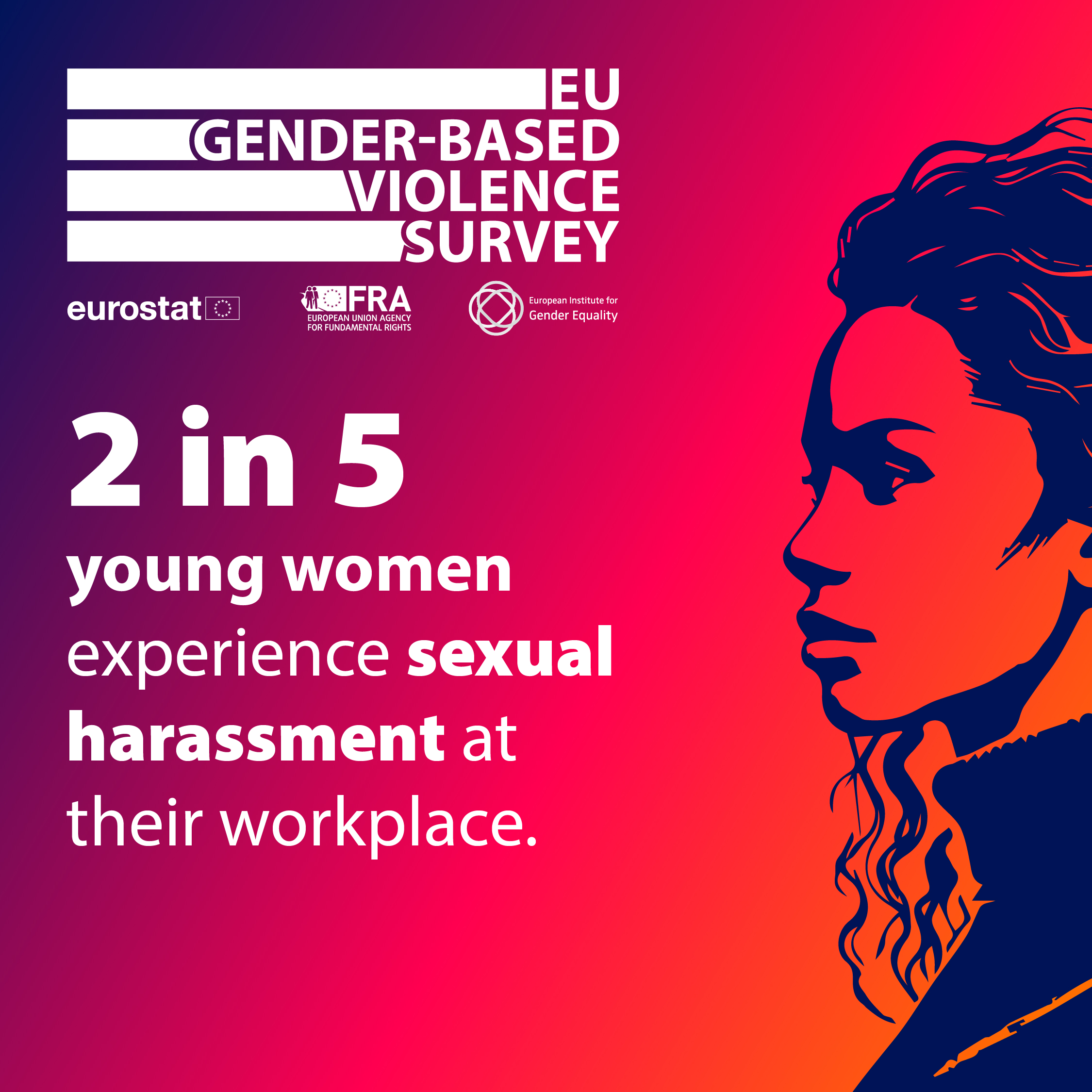The EU gender-based violence survey was carried out jointly by Eurostat, FRA, and EIGE - the three organisations which are responsible respectively for official statistics, human rights, and gender equality within the EU. The data collection took place between September 2020 and March 2024. The results of the survey provide data which will better enable policymakers across the EU to combat violence against women and give more effective support to victims.
One in three women in the EU have experienced violence

The survey findings concern issues such as:
- The prevalence of violence: 1 in 3 women in the EU have experienced physical violence, sexual violence, or threats in their adulthood.
- Sexual violence and rape: 1 in 6 women in the EU have experienced sexual violence, including rape, in their adulthood.
- Violence at home: Home is not always safe for many women: 1 in 5 women have faced physical or sexual violence from their partner, a relative, or another member of their household.
- Sexual harassment at work: 1 in 3 women have been sexually harassed at work. Younger women report a higher prevalence, with 2 in 5 having experienced sexual harassment in their workplaces.
- The non-reporting of violence: Although a majority of women who have experienced violence have spoken to a person close to them about this, only 1 in 5 have contacted a healthcare or social service provider, and just 1 in 8 have reported the incident to the police.
“There are no safe spaces for women, free from violence and harassment. Back in 2014, with its first EU-wide survey on violence against women, FRA revealed the extent to which women experience violence every day and everywhere. A decade later, we continue to witness the same shocking levels of violence that affect 1 in 3 women. Rates of violence against women remain far too high. Policymakers, civil society and frontline workers urgently need to support and protect the rights of all victims of gender-based violence and domestic abuse no matter where it takes place.”
Quote from FRA Director Sirpa Rautio
Share our posts with your network:

Other visuals:

Our work on gender-based violence:

EU gender-based violence survey - Key results
25 November 2024
This report presents key results of the EU gender-based violence survey based on data from all 27 Member States. The report focuses on the overall prevalence of physical violence or threats and/or sexual violence by any perpetrator, violence perpetrated by women’s intimate partners and by other people (non-partners) and women’s experiences of sexual harassment at work.

Online content moderation – Current challenges in detecting hate speech
29 November 2024
Women, Black people, Jews and Roma are often targets of online hate speech. This report presents the challenges in identifying and detecting online hate. Hate of any kind should not be tolerated, regardless of whether it is online or offline. The report discusses the implications for fundamental rights to support creating a rights-compliant digital environment.

Women as victims of partner violence – Justice for victims of violent crime
25 April 2019
Victims of violent crime have various rights, including to protection and to access justice. But how are these rights playing out in practice? This report zooms in on the experiences of one particular group of victims, namely women who endure partner violence.

Challenges to women’s human rights in the EU
13 November 2017
Women and girls in the EU experience persistent gender discrimination and gender-based violence, as evidence collected by FRA confirms. This severely limits the ability of women and girls to enjoy their rights and to participate on an equal footing in society. This FRA contribution to the third Annual Colloquium on Fundamental Rights ‘Women's rights in turbulent times’ looks at core human rights commitments. It balances these against selected evidence on gender discrimination, sexist hate speech and gender-based violence against women and girls in the EU.

Violence against women: an EU-wide survey. Main results report
5 March 2014
This FRA survey from 2012 was the first of its kind on violence against women across the 28 EU Member States. It is based on interviews with 42,000 women across the EU, who were asked about their experiences of physical, sexual and psychological violence, including incidents of intimate partner violence (‘domestic violence’).











